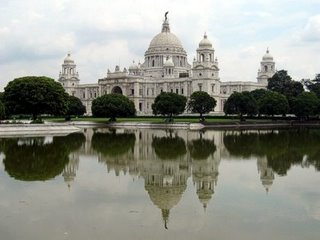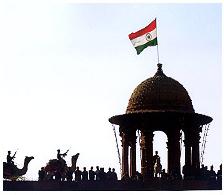Oh, Kolkata!

In replacing the colonial names of several cities, India loses some of its spice.
CALCUTTA SEARS the senses. You can almost taste the poverty, the spices in the air, the breathless heat and the swirl of humanity. I once watched bodies being cremated on pyres along the banks of the Hughli River. Then I retired to the Grand Hotel for a splendid lunch. Wondrous, uninviting, unforgettable — the former capital of British India is all those things.
"There is only one city in India," Rudyard Kipling wrote in 1888 in "City of Dreadful Night." "Bombay is too green, too pretty, and too strugglesome; and Madras died ever so long ago. Let us take off our hats to Calcutta, the many-sided, the smoky, the magnificent, as we drive in over the Hughli Bridge in the dawn of a still February morning."
Kipling no doubt would be saddened to learn that Calcutta no longer exists. Nor does Madras or Bombay. The cities are now named, respectively, Kolkata, Chennai and Mumbai, reflecting India's nationalistic move over the last several years to toss out names bestowed by foreigners in favor of original names that predate colonialism. With Western newspapers now starting to use the official names for datelines, Calcutta, Madras and Bombay are headed, in name at least, for the historical scrap pile. The old names have been banished from The Times effective Monday.
Of course, the souls of the cities haven't changed, only the names. And after all, what's in a name? Actually, everything. A country's or a city's name is part of its people's culture and literature. To change the name is somehow to diminish the past, as though implying, "Forget what was. We are starting fresh." That was Pol Pot's intent in 1975 when he renamed Cambodia as Democratic Kampuchea, using a purer, less Westernized transliteration, and his murderous Khmer Rouge began a four-year reign of terror to wipe out all signs of modernity.
Changing place names has been relatively common in the post-colonial era, particularly in Africa; and, unlike in Cambodia, it has generally occurred without incident. Peking (a name originating with French missionaries 400 years ago, based on an older Mandarin pronunciation) became Beijing (which means "northern capital"). Rhodesia, named for the British imperialist Cecil Rhodes, became Zimbabwe. Dahomey turned into Benin. The Democratic Republic of the Congo became Zaire. Then, in 1997, to purge the legacy of dictactor Mobutu Sese Seko, new dictator Laurent Desire Kabila changed it back to the Democratic Republic of the Congo.
In Upper Volta (named for a river), the country's leader, Thomas Sankara, created a new country with the stroke of a pen in 1984, naming it Burkina Faso (which translates as "democratic and republican land of upright men"). Fortunately, he did not fiddle with the capital's wonderfully mellifluous name, Ouagadougou (pronounced WAH-GAH-doo-goo). The change may have stirred nationalistic sentiments, but it didn't accomplish much else. The Burkinabes are as desperately poor as were the Voltarans.
Confusion is often one of the main products of changing the name of a country or a city. Every Western traveler has heard of Burma and its capital, Rangoon. But mention Myanmar (which Burma became in 1989) and its capital, Yangon, and you're apt to get a blank stare. The new names never seem as good a fit as the old ones. They don't conjure up images or bring to mind the words of Graham Greene, Joseph Conrad or Kipling. The dawn still comes up like thunder on the road to Mandalay, but somehow that dawn seemed more romantic and mysterious when the road ran through Burma instead of Myanmar.
In the late 1960s, during the Vietnam War, I lived in Saigon, which was then arguably the world's most famous dateline. The city was sensual, with an odd blend of danger and exotic intrigue, and for old Asian hands, just the word "Saigon" still stirs memories of canals and tree-shaded villas and wide French-built boulevards. (Not a single one of which carried the name of a Vietnamese person, place or event.)
"Saigon is very small and referred to proudly by the French as the Paris of the Orient," sniffed Noel Coward after a pre-World War II visit. "This, I need hardly say, is an overstatement." In 1976, a year after Saigon fell to communist troops, Saigon was renamed Ho Chi Minh City, honoring Vietnam's revolutionary leader. But the name never sounded right. It didn't roll off the tongue easily, and it didn't speak to the city's history or ambience. It was like renaming Boston "John F. Kennedy City." The name is so cumbersome it's become an acronym. To this day, many Vietnamese still refer to HCMC as Saigon, and, when Western newspapers mention Ho Chi Minh City, they are apt to give readers a parenthetical hand by adding, "formerly known as Saigon." Names change, but the past is not easily forgotten.
- David Lamb, Los Angeles Times

0 Comments:
Post a Comment
<< Home